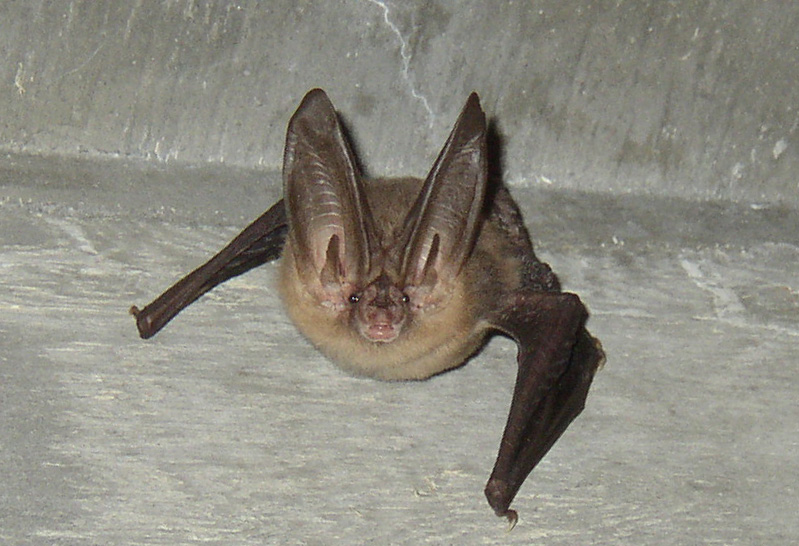Professor receives $8,000 grant to study bats on Parkway
A Virginia big-eared bat, one of 12 confirmed species of bats found in the Blue Ridge Parkway. The National Park Service granted $8,000 to App State Professor Mark Spond to research the varieties of bats on the parkway and which are at risk for lethal White Nose Syndrome.
March 29, 2019
Twelve bat species live on the Blue Ridge Parkway. White Nose Syndrome, a lethal infectious disease, affects nine of those species.
The National Park Service granted $8,000 to Mark Spond, an App State professor and NPS App State liaison, to survey bats on the Blue Ridge Parkway, identify what species are present and which are at risk for White Nose Syndrome. This disease is lethal to bats because it causes them to wake up early from hibernation and starve to death.
“White Nose Syndrome is a big concern amongst land managers in the National Park Service right now,” Spond said. “Managers first observed (White Nose Syndrome) in New York in 2006, and by 2019, it’s spread to almost 30 states and a good portion of the Canadian provinces as well.”
Robert Cherry, a wildlife biologist for NPS, said bats are important because they eat insects.
“They’re kind of a natural pesticide and keep down some of the animals that would eat like cabbage and corn,” Cherry said.
White Nose Syndrome thrives in damp, cool environments, which is why the disease affects bats that hibernate in caves more, Cherry said.
“The ones that sleep for long periods of time, the fungus develops on them,” Cherry said. “It wakes the bats up in the wintertime when they’re sleeping. The bats basically starve to death.”
When conducting the survey, biologists use acoustic detectors to record bat calls at a higher frequency. Biologists then run recordings through a bat call identification software program, Cherry said.
Cherry said he believes bats are unappreciated because many people think they are evil.
“I think it’s amazing what bats can do with their echolocation and fly around trees and catch moths in the dark,” Cherry said. “They eat agricultural pests, they eat mosquitos, they benefit us that way.”
Spond said additional funding for a summer survey is pending.













